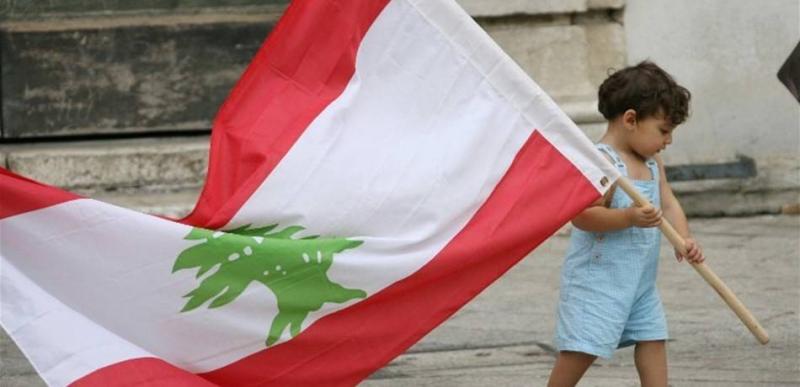A report released today, Thursday, by the United Nations Development Program indicated that "uneven progress in development leaves the poorest groups behind, exacerbating inequality and provoking political polarization on a global scale. The implications of this are a serious deadlock that needs to be urgently addressed through collective action." The human development report titled "Breaking the Stalemate: Rethinking Cooperation in a Polarized World," revealed a "worrying trend: the rebound of the global Human Development Index (HDI) — a composite measure reflecting gross national income per capita (GNI), education, and life expectancy — has been partial, incomplete, and unequal."
It was noted that "the Human Development Index is expected to reach record levels in 2023 after sharp declines in 2020 and 2021. However, this progress is highly uneven. Wealthy countries are witnessing unprecedented levels of human development, while half of the world's poorest countries remain below the development levels they had achieved prior to the crisis. Global disparities are worsened by significant economic concentration. As indicated in the report, nearly 40% of global goods trade is concentrated in three countries or fewer; and in 2021, the market value of the top three tech companies in the world exceeded the GDP of more than 90% of countries that year."
The report revealed that "the widening human development gap indicates that the prevailing trend to reduce inequality between rich and poor countries is now moving in the opposite direction. Despite the interconnectedness of global communities, we are failing. We must leverage our interconnectedness and capacities to address our common existential challenges and ensure the aspirations of people are met," said Achim Steiner, Administrator of the United Nations Development Program, adding that "this stalemate carries significant human costs. The failure of collective action to advance work on climate change, digitalization, poverty, and inequality not only hampers human development but also exacerbates polarization and erodes trust in people and institutions worldwide."
The report noted that "the progress of international collective action is hindered by a modern 'democracy paradox': while 9 in 10 people globally support democracy, more than half of survey respondents expressed support for leaders who may undermine it by flouting the basic rules of the democratic process, according to the data analyzed in the report. Half of the survey participants worldwide reported a lack of control over their lives or limited control, and more than two-thirds believe their influence on government decisions is minimal. Political polarization is also an increasing concern with global implications."
The report emphasized "how to reshape global interconnectedness," calling for "a new generation of global public goods," proposing "four areas for immediate action: - global public goods for climate stability, as we face unprecedented challenges in the Anthropocene; - global digital public goods, to achieve greater justice in harnessing new technologies for human development equity; - new and expanded financial mechanisms, including a new pathway for international cooperation that complements humanitarian assistance and traditional developmental aid for low-income countries; - and reducing political polarization through new governance methods focused on amplifying people's voices in deliberations and tackling misinformation."
In this context, the report viewed "multilateralism as playing a vital role, as bilateral commitments are insufficient to address the irreducible planetary nature of providing global public goods."
The report included key data: In 2023, all 38 member countries of the Organisation for Economic Co-operation and Development (OECD) made progress in the Human Development Index compared to their levels in 2019. Among the 35 least developed countries that saw a decline in their Human Development Index in 2020 and/or 2021, more than half (18 countries) have not yet recovered to their 2019 human development levels. Not all developing regions achieved the expected levels of Human Development Index based on the prevailing trends before 2019 and they appear to have shifted to a lower trajectory on the Human Development Index, indicating potential permanent setbacks in future human development progress. The impact of human development losses is sharply highlighted in Afghanistan and Ukraine. Afghanistan's Human Development Index has declined for an astonishing ten years, while Ukraine's Human Development Index has dropped to its lowest level since 2004. The report cites research indicating that countries with populist governments have lower GDP. After fifteen years of populist government, GDP per capita remains low and is 10% less than it could have been under a non-populist government scenario.
As for Lebanon, there was a slight improvement in the Human Development Index, which rose from a level of 0.706 in the 2021/2022 period to 0.723 in 2023, resulting in Lebanon's ranking improving from 112 (out of 191 countries) to 109 during this period. However, this index remains significantly lower than the level recorded in 2020 when the Human Development Index was at 0.744 and Lebanon ranked 93rd. This classification has been affected in the past period, in addition to global crises resulting from the spread of the COVID-19 pandemic and the ripple effects of the global economic crisis, by major internal crises, most notably the financial and economic crisis, which has been classified as the most severe in modern history, along with the massive explosion that struck the Port of Beirut, destroying large parts of the capital, coupled with ongoing security and social instability that continues to adversely affect Lebanon's developmental trajectory.




